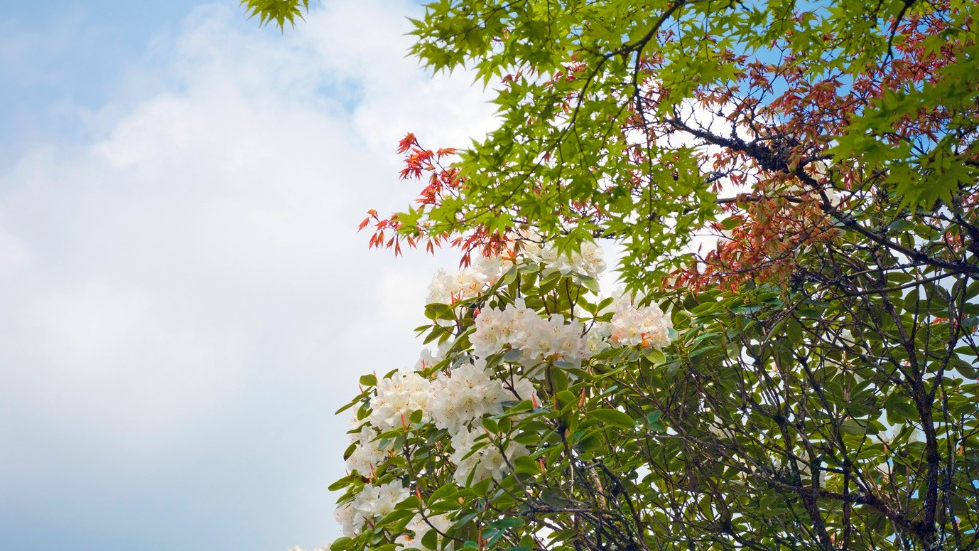Multifaith, About Faith
Living the Questions: Bringing Ecological Chaplaincy to the Multifaith Centre
Gathering in the soft light of a forest canopy, we begin to settle into a makeshift circle at the Faculty of Environment’s new forested outdoor classroom. We do a round of introductions and when the attention turns back to me, I welcome everyone to the Climate Café, and admit that some might leave disappointed.
This is because the purpose of a Climate Café, is not to solve the world’s problems, or even to leave with a list of five things you can do RIGHT NOW to solve the climate crisis. In fact, after participating, one may not even leave feeling better about our current situation. So, what’s the point?
Over the last several month’s I have been piloting an ecological chaplaincy program at the Multifaith Centre in partnership wit the Faculty of Environment. Chaplaincy is another way of saying spiritual care, and as the climate crisis worsens, anxiety and grief about the state of the world is reaching epidemic proportions.
As important as collective action, political pressure and sustainable lifestyles are, we need to stop and take stock of the toll bad news is having on us. A chaplain is someone who meets people where they are. And where we are is on the brink. That is the starting point of a Climate Café, admitting together that things are not looking good, and that for all the passion and action we are trying to muster, we may not be able to prevent serious ecological unravelling in our lifetimes. From there we move into sitting with the discomfort this possibility (nothing is certain) brings. The beauty of doing this in a circle is that we do not have to face it alone.
One of the reasons that many of us tune out bad news, is because it can be quite destabilizing and dysregulating. We sink into what Dr. Dan Siegel, a professor of psychiatry at UCLA calls hypo-arousal—feeling low, depressed and bleak. Or we sense ourselves to be hyper-aroused and feel anxious, fearful and on edge.
We all have a range of coping mechanisms to assuage these dysregulated states. Distancing ourselves in time and space and moral accountability. Rather than tuning out or binging Netflix, ecological chaplaincy invites us to safely explore the depths of our own emotional range. What would it look like to sit with the discomfort bad news brings a little longer? To reflect on the consequences of our lifestyles a little deeper? How might we find our place in the world we hope to inherit?
There are no simple answers to these questions. But what Siegel calls our “window of tolerance” is the space where we feel regulated and grounded, even when things are uncertain or hard. Our window of tolerance is the place where we can resiliently weather life’s challenges. More importantly, it is the space out of which our talents, joys and abilities can most naturally flow.
Contemplative practices used for thousands of years by mystics to experience the Divine, also have the benefit of regulating our nervous systems and expanding our window of tolerance. Practices such as mindful forest walks, silent meditation, art or even some recreational activities help to regulate our body-minds and create space for dealing with the practical impacts of uncertainty.
Unlike therapy, which responds to individual psychic trauma and ongoing symptoms associated with mental health, and activism which organizes collective responses to specific ecological issues, ecological chaplaincy invites us to face uncertainty with curiosity and build resilience as it unfolds. I take inspiration from the German mystic poet Rainer Maria Rilke who encouraged a young poet in a letter to “live the questions themselves.” It may be uncertain what we must do to fully walk back from the brink of this crisis, but by staying close to that question and building resilience through contemplative practices, we may find ourselves living the answers.
The Fall of 2024 promises many more events, so stay tuned by checking out the Community Connect or follow the MFC on socials




